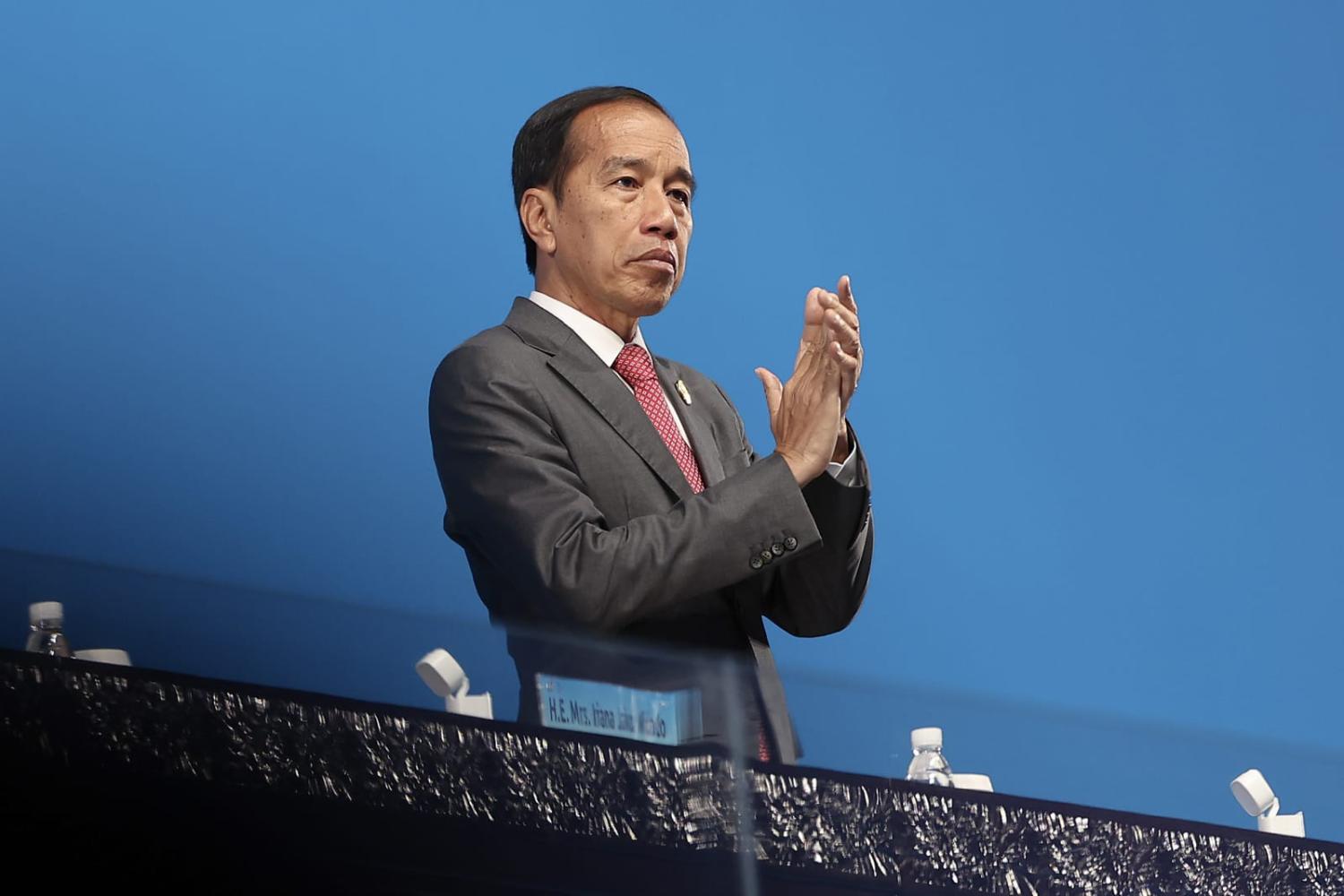Indonesia has been increasingly under a spotlight in international politics. Having successfully hosted the G20 Summit last year, navigating tensions between United States and China and the war in Ukraine, Indonesia is also on track to completing its role this year as ASEAN chair. Having for years of held a reputation for a firmly non-aligned foreign policy, Indonesia has stepped up in various initiatives with the United States and began to engage with the BRICS by participating in the grouping’s summit.
This active international profile raises questions as to what kind of international order that President Joko Widodo articulates. Dubbed “a man of contradiction” by former Lowy Institute analyst Ben Bland earlier in his presidency, Widodo’s increasingly active engagement in recent years shows a larger vision that shapes Indonesia’s regional and global engagement under his administration.
In a new article for International Affairs, I argue that Widodo embraces a pragmatic and economic-oriented view of international order. Widodo, often referred to as Jokowi, emphasises the purpose of international order to pursue equitable economic development for small and middle powers. International order should be based on sovereignty and territorial integrity, sovereign equality, and renewed multilateralism that delivers public goods in a just manner. Moreover, for Widodo, international order should be open to the new emerging economic powers that increasingly play a role in the 21st century.
This vision is incompatible with the Western-led global economic order. Widodo has criticised the global economic system dominated by international financial institutions, including World Bank, the International Monetary Fund, and the Asian Development Bank. Widodo argues that global financial architecture should be reformed by alleviating the domination of one group of countries and open up more spaces for rising economic powers.
While criticising the present international order, Widodo has not rejected its legitimacy. As G-20 president, Indonesia worked with the World Bank to create a global pandemic preparedness fund for low- and middle-income countries. Widodo, however, is highly critical for the failure of what is termed the “liberal international order” to promote equitable economic development between countries and want more voices and roles to play in global politics.
Behind this criticism was Widodo’s quest for ambitious infrastructure projects and investments, particularly following the Covid-19 pandemic. Soon after becoming President, Widodo laid out a foreign policy with an economics-heavy agenda. In line with this vision, Widodo embarked on ambitious infrastructure projects facilitated by investments from major international companies and state-owned enterprises. He also sought to raise funds for the relocation of the country’s capital.
His vision for transformed international order inevitably lead to Indonesia’s increased engagement with the rising China. Widodo’s discontent with the Western-led liberal international order was a neat fit with China’s commitment to investment and trade, and its emphasis on the norm of sovereignty in economic cooperation. China helped Indonesia during the pandemic, providing vaccines and protective equipment. More importantly, Indonesia also benefitted from the Belt and Road Initiative with giant investment projects, particularly in extractive industries and infrastructure development.
This increased engagement is not without cost. There are concerns about how a dependence on China’s investment could affect Indonesia’s position in South China Sea disputes or perceptions of Indonesia’s criticism about the AUKUS nuclear-powered submarine deal involving Australia, the United Kingdom and United States.
For Australia, this patterns suggests a strategic divergence will shape the relationship with Indonesia. This does not mean Indonesia will abandon constructive relations between the two countries, since Widodo has sought to strengthen Indonesia-Australia economic partnership in the last two years. However, Widodo’s vision shows the different ways Indonesia see international politics from that of Australia and the United States.
His approach is important to understand in the context of the domestic politics that will shape Indonesia’s foreign policy after the 2024 general election. The two front-runners, Prabowo Subianto and Ganjar Pranowo, have Widodo’s support and are likely to continue Widodo’s foreign policy, while the opposition candidate Anies Baswedan has not heavily distanced himself from Widodo’s international approach. This suggests that the next president is likely to continue “the Jokowi Doctrine” into the future.

